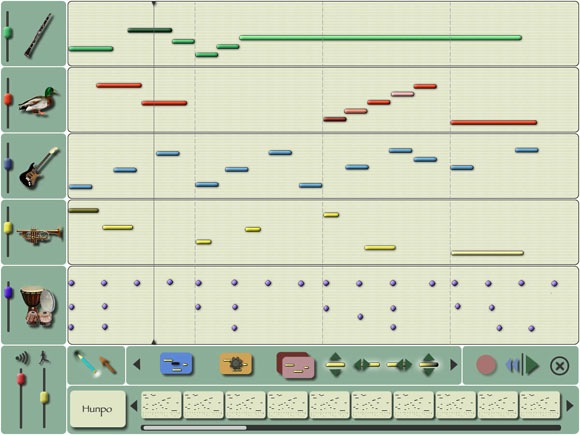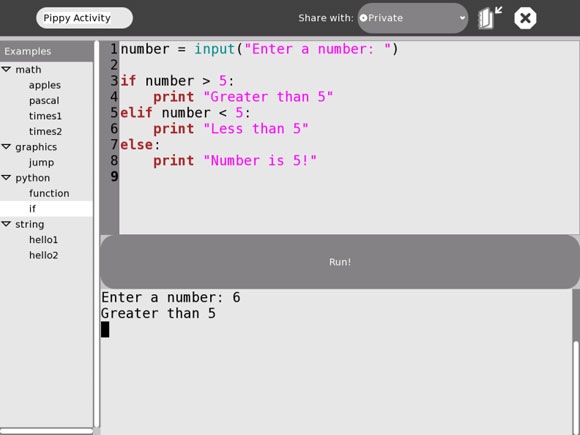Ah, the seasoned OS zealot. Never fear: no actual issues of substance will ever distract them from one-dimensional tirades about how their platform is best. And so, in the last week or so, you may have run across angry Free Software advocates railing against the inclusion of Windows on the OLPC ("One Laptop Per Child") XO laptop — or, in a really surreal turn, people waxing poetic about XP, like this commenter on the Win Supersite: "We get a world wide audience of children who will embrace XP and gain valuable lifetime skills."
All of this is a complete waste of time, not because the OS question is unimportant, but because it’s detracting from the more important question of education, which was supposed to be the point.
Part of why the OLPC mattered — and continues to matter — is it raises questions about what computers mean for learning. That’s a question we haven’t asked enough recently in the US, let alone across the planet. Whether Negroponte and the remaining OLPC project leaders have lost their way or not, that central question of computers and learning seems to be lost in the usual blog banter. Fortunately, it’s a discussion I think will survive after the immediate technologies have faded away.
I was lucky enough to grow up in a generation that got some exceptional educational training on computers, ironically because I think a certain suspicion of them made people more rigorous about educating with computers instead of just teaching them for their own sake. Show of hands, Reagan-era kids: how many of you learned to program with LOGO ("turtle graphics")? How many of you got to use music software? How many got to work with HyperCard? How many of you then later saw an education that later shifted to basic skills in tools like PowerPoint, instead of understanding real connections to other fields, mathematics, and programming techniques?
Platform does matter — especially given that, currently, the use of Windows breaks the Sugar interface, the educational software written for the OLPC, and critical hardware support for mesh networking, e-book reading, and power management. Maybe Negroponte will keep his word and port those to Windows; there remains reason to believe he won’t.
The question of learning, though, has been lost. I do believe that free software could be powerful for education, but it should be as a means to an end — not an end in itself. It’s one thing to say the software is free, it’s open source — another thing to figure out what it is you’re teaching. Free software opens the doors to the classroom, but it’s only a first step. And, honestly, those questions are important enough that we should be asking them about Windows and Mac software, too, software on proprietary platforms. Getting hung up on the free software question seems to derail that discussion — and allow people to conveniently duck all the real work of developing the tools.
The only really good analysis of the OLPC situation I’ve seen comes from Ivan Krstić, the head of security architecture for the OLPC before he (like so many recently) left the project:
Worth reading in full, but this for me is the bottom line:
But really, I digress. The point is that OLPC was supposed to be about learning, not free software. And the most upsetting part of the Windows announcement is not that it exposed the actual agendas of a number of project participants which had nothing to do with learning, but that Nicholas’ misdirection and sleight of hand were allowed to stand.
…
In fact, I quit when Nicholas told me — and not just me — that learning was never part of the mission. The mission was, in his mind, always getting as many laptops as possible out there; to say anything about learning would be presumptuous, and so he doesn’t want OLPC to have a software team, a hardware team, or a deployment team going forward.
Yeah, I’m not sure what that leaves either.
There are three key problems in one-to-one computer programs: choosing a suitable device, getting it to children, and using it to create sustainable learning and teaching experiences. They’re listed in order of exponentially increasing difficulty.
It’s disturbing stuff — but then again, I’m convinced that there are enough people who really do care about the deeper issues of learning that the issue will be alive — assuming the dunderheads in the blogosphere don’t let this disintegrate into a meaningless Linux vs. Windows debate.
Software and ideas could go well beyond just one piece of hardware — even carrying some of those hardware design principles to other devices, which arguably has begun to occur with the popularity of affordable laptops like the Asus Eee. That’s why I think some of the good news in all of this is former OLPC president of software and content Walter Bender founding the Sugar Labs Foundation. It suggests a future for the free and open-source learning software and unique "activity-based" interface on the XO, one that could work on other inexpensive laptops and your personal computer, too:
Sugar’s game-changing UI generated a lot of discussion — and often-warranted criticism. But one thing I noticed is that almost every review mentioned the music applications favorably. Music is one of the major draws of computing. And that’s not only for kids, but the adult reviewers, as well. If you think about how this can be built over time, music is a superb medium for talking about sound, physics, mathematics, aesthetics, time, and fundamental principles of communication, expression, and perception.
Music learning — and learning in general — also benefit from some of the other aspects of Sugar:
- Focusing on activities: I really love this interface. Everything you do is based on "activities" — files and applications allow you to pick up an actual project where you left off and continue work, logging what you’re doing in a persistent journal. It feels fantastic for creative work, not just for "kids." I expect we could see this interface pop up in other places.
- Teaching programming: Built-in apps teach Python coding, even to non-programmer children. It brings computing full circle to the days when PCs like the Apple II shipped with BASIC (incidentally, the product that launched Microsoft — otherwise Bill Gates would presumably still be an obscure college dropout). And the ability to code simple tools makes sure that computer users don’t hit walls with their ability to make the machine do what they want.
- Free, open-source, easy development: Forget about the philosophical aspirations of the free software movement for a moment. The ability to easily extend a computer with free software, and to see lots of source code for what you’re using as an example, has practical benefits. One real-world result: Sugar can live far beyond the OLPC if that project goes away.
Sugar does appear to have a future independent from the OLPC. It’s already included with a couple of major Linux distributions. It’s relatively easy to install on your PC. Activities run on cross-platform, open Python, which could eventually bring their benefits to Mac and Windows — no specific hardware required. (Java is getting added, as well.) The music software is perhaps the deepest and richest, based on Csound as a synthesis engine. I’m also interested in the partly-finished port of the Java-based coding language Processing — or ways in which Processing itself could benefit from
Again, the execution in Sugar may not be perfect. But the point isn’t whether it’s perfect. It’s not the OLPC, or Sugar, or Linux, or even free software as an ends in themselves. It’s figuring out what’s essential to building better educational tools for computers — and that’s a far more interesting question.
Ironically, amidst all this controversy, an OLPC developer XO machine just arrived at my doorstep. So I’ll be working to code for it, and will share what I make and what I learn about the device. I’m also in touch with other music developers working on the XO. Whatever happens to the project, I think there’s plenty to be learned. Stay tuned.


